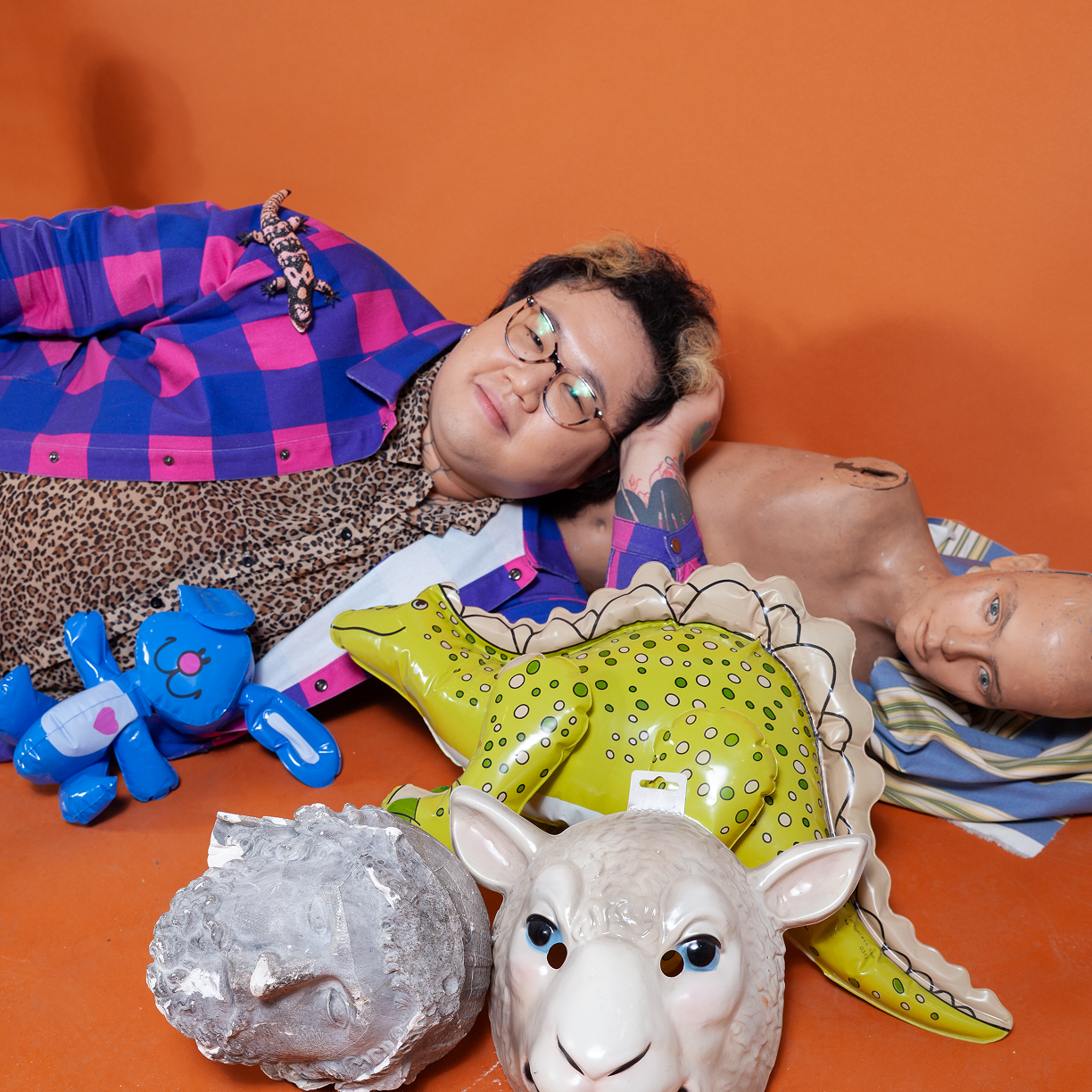Conrad Cheung is an artist, writer, and educator whose practice operates across two parallel registers: building counter-systems — spatial, ecological, procedural — that widen the commons under hostile conditions, and writing cultural theory that diagnoses how those conditions are produced. Working across installation, performance, video, civic practice, and critical writing, Cheung tracks how architecture, platforms, and administrative systems format collective life — organizing bodies, capturing attention, converting shared space into governable objects, and quietly deciding whose futures, human and nonhuman, can be imagined. They build infrastructures designed to resist and rescript that conversion: architectures, protocols, events, and furniture that make room for strange collaborations, multispecies cohabitations, and forms of gathering, refusal, and care that existing orders are not built to accommodate.
Drawing on histories of experimental architecture, alternative theater, and institutional critique, Cheung often works through parafictional and collaborative frames, including the Institute for Improvisational Infrastructures (a counter-architectural firm with a rotating cast of collaborators), nonhumanities (with Anna Hogg and Katie Baer Schetlick), and performed personae in public spaces. Current projects include One Million Counterextinctions, a three-stage civic art project launched in partnership with the Alachua County Office of Resiliency that collaborates with communities to design emergency infrastructure for nonhuman species in a climate-shifted 2045. Cheung's writing examines how affects and economies shaped by digital platforms and institutional governance — exhaustion, misalignment, the soft capture of desire — become structural rather than individual conditions. This work includes "Libidinal Loop, Rotten Image: A Theory of Brainrot" (Asia Art Archive, 2025) and Making Unseizable, a book-length manuscript on designing commons that persist under hostile governance.
Cheung is Assistant Professor of 3D + Extended Media in the School of Art + Art History at the University of Florida. Previously, they taught at the University of Virginia, where they served as Head of Sculpture from 2022 to 2024, and at Colorado College. They hold an MFA from the School of the Art Institute of Chicago as the 2021 Eldon Danhausen Fellow in Sculpture, as well as a BFA in Ceramics and a BA in Philosophy from Alfred University. They have exhibited in the US, Canada, France, and China, at venues including the Museum of Contemporary Art Chicago, Mana Contemporary, the New York State Museum, and the Monira Foundation.
Cheung's CV is available here; a complete CV is available upon request. You can email them at conradcheung@ufl.edu.
